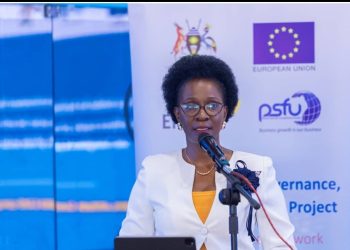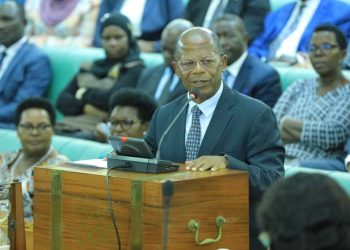As the education ministry prepares to roll out the new O’level curriculum this coming academic year, schools have been tipped to work out strategies to procure the revised textbooks.
The National Curriculum Development Centre (NCDC), has said the printing of the revised textbooks has kicked off and all schools will be required to stock the new instructional materials.
Between now and the start of the first term (February 3), schools have less than 20 days to procure the new textbooks. Christopher Muganga, the head of secondary school curriculum at NCDC said, they were printing the Senior One textbooks first.
He said continuing students will not be affected by the new arrangements. “Students joining Senior One this year will be the pioneers of the new curriculum. Textbooks for the rest of the O’level classes will be printed gradually as the pioneers are promoted to the next classes,” he said.
For starters, the education ministry will distribute free sample textbooks to both government-aided and private schools. For private schools, he said, the ministry will only cater to compulsory subjects such as mathematics, chemistry, physics and biology, geography, history, and political education.
After that, the schools will be expected to buy textbooks. Private schools will also be required to buy Kiswahili textbooks since it is compulsory in both Senior One and Two.
“We will ensure that all government-aided schools and registered private schools get copies of the sample textbooks,” Muganga said in a phone interview over the weekend.
The new curriculum focuses on student-centered learning as opposed to passing examinations. Generic skills emphasized in the curriculum are critical thinking, problem-solving, mathematical computation, ICT proficiency, and communication.
Funding
Grace Baguma, the NCDC director, said they need about sh39.5b to roll out the new curriculum. Baguma is hopeful that the funds will be released before the start of the new academic year. She said NCDC and the education ministry, have embarked on retooling teachers regarding the new changes.
Starting today, about 800 teachers from both government-aided and private schools will be trained in delivering the new O’level curriculum. Thereafter, the training will be extended to about 50,000 others.
Under the new curriculum, the number of subjects taught at O’level has been scaled down from 43 to 21. Even with these subjects, the content has been reduced and some combined.
Major changes
Cross-cutting issues such as climate change, patriotism, human rights, gender and HIV/ AIDS among others have been integrated into various subjects.
A student is expected to study a maximum of 12 subjects at both Senior One and Two of which, 11 are compulsory. In Senior Three and Four, a student is expected to study a minimum of eight and a maximum of nine subjects with only seven compulsory ones.
With the old setting, the student would take a maximum of 10 subjects. Under the new curriculum, classroom teaching time has been reduced to five hours a day. Lessons start at 8:30 am and end at 2:50 pm, including lunch breaks.
The remaining time will be used by students for hands-on projects, research, project work, clubs, games and sports and have time for revision lasting one hour and 40 minutes. The school day will end at 4:30 pm.
On assessment, all classroom works, games and sports will account for 20% of the marks at the end of the O’level cycle. The Uganda Certificate of Education will account for 80% of marks a student gets at O’level.





























































